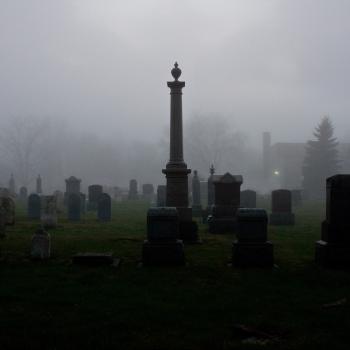
Ask any Christian what the most difficult part of his or her faith is, and that Christian will likely say “Prayer.”
This Christian concurs. It feels more productive and important to be doing … something … anything with my hands. Besides cleaning toilets, literally any task seems more worthwhile than having what feels like a one-sided conversation. What I forget is that prayer is not a one-sided conversation (unless I make it so). I forget that, in prayer, I’m conversing with the God of the universe. The God who saved my soul. The God who can help me in all my distresses. The God who is worthy to be praised.
Still, even once I’ve reoriented my mind to these truths, it’s hard. If I close my eyes, I tend to drift off into sleep. Sweet, deep sleep, I’ve noticed, because the Devil wants me to hush. Or my mind wanders, and it’s difficult to remain focused on whatever it was that made me desperate enough to come to God in the first place. Besides, is He really listening? Isn’t He, in His sovereignty, going to do what He’s going to do, even if I do pray? What difference will my mumbly, bumbling prayers make?
Yet, the Bible says “Pray without ceasing.” (I Thess. 5:17)
So, I’ve been praying more. Frankly, I’ve become rather tired of my prayers, because like the rest of humanity, I’m too focused on myself and everything I want. If I let my mouth run, it reveals a far deeper focus on material goods than I’d like to admit. Or healthy bodies – mine or others’. And then there’s what Alistair Begg calls God-be-with prayers.
God be with my husband.
God be with the President.
God be with little Johnny.
God-be-with prayers are basically prayers that say “God I know you lied in your Word. You’re not really with us. You leave us all the time. So please be with …”
“I will never leave you nor forsake you,” says the Lord.
You see now how twisted and difficult prayer can become. So as I work toward a solution here, let me first say that God is understanding. He remembers we are but dust. He gets that at times, we feel more fatigued than a dead possum. He understands we forget His promises, even when we are talking straight to Him. He understands that at times, all we can manage is a quick “I’m sorry. Please forgive me.” Or a staccatoed “Help!”
God loves all prayer that comes from His children, and when we don’t make any sense, the Holy Spirit graciously helps us, and takes our mere grumblings and mumblings and bumblings to the Lord Himself, nicely interpreted. Weak, imperfect praying is no excuse to skip our prayers, but it’s comforting to know that we are heard, loved, and comforted even if we aren’t perfect pray-ers.
On the other hand, He also wants us to grow out of immature praying and learn to talk to Him in ways that grow us, and in ways that are more effectual.
A little over a decade ago, I began attending a church that, on Wednesday nights, prayed through the Psalms. I’ve been in churches since I was eight months old, but never had I heard of the concept of praying through Scripture. I was intimidated. And maybe a little encouraged. I thought maybe we could just read Scripture back to God, and BAM! All my prayer problems would dissipate. Ha! Not so. But I quickly learned that taking just a small portion of a Psalm or other Scripture, and talking to the Lord in a way that surrounded the truths found there, I began to pray His will … not mine. I began to pray in ways that would help others spiritually, rather than materially or physically. I continue to struggle with God-be-with prayers, because it’s a lot like saying “Uhmmmm” in a public speech. “God be with” gives you a second to think about what you’re going to pray for that person. But I’m learning that if you can get comfortable with a few seconds of silence (I know, it’s terrifying!), you can just skip right over the empty God-be-with’s and move on to the real, deep stuff.
For quite a few years, I prayed the Psalms. When I raised my teenagers, I often prayed Psalm 51 like a madwoman, desperate for her children to abstain from committing spiritual suicide. Repentance (the theme of Ps. 51) is what we all need. Repentance is especially what teens need! And then … because I am rebellious, I became a bit bored. I moved to other Scriptures to pray, but everything seemed dry. Like I was drinking water yet remaining parched.
I went back to praying my own prayers, which admittedly have improved since I learned to pray Scripture. But still, they felt empty and too Brenda-focused.
Then I found a prayer book.
I’m actually against prayer books. The danger one might fall into by using prayer books is the danger of mentally checking out and letting someone else do the hard work of intercession. Also, one might fall into repetition that comes from the brain only, not the heart. In prayer, I believe we should be all there. All in, mentally, emotionally, spiritually, and intellectually. But with The Valley of Vision, my mind can’t help be mentally alert, because it’s written by really smart, articulate Puritans. Yeah … the ones everyone thinks were such prudes (they weren’t, but that’s another blog for another time).
The Valley of Vision is heavy, in a good way. It’s deep. Rich. Scriptural. The supposedly prude dudes who wrote it knew their Bible, they knew who God was, and most of all, they understood just how deep the depravity of man runs. Their prayers reflect that depravity, and the solution to it, which is Jesus Christ, God’s Son.
It’s counter-cultural, in that the reader will not hear even a tiny hint of anything that might feed her ego or her suffering, dwindling, perhaps dying self-esteem. It will, however, ground her in who she is in Christ, which (spoiler alert!) turns out to be a balm for a wounded self-esteem. It will help her understand who her loved ones are in Christ: friend or enemy. And then it will help her pray accordingly. To pray realistically, rather than optimistically in ways she shouldn’t be about the human condition. The prayers keep you focused on spiritual growth, rather than material gain. And though it acknowledges human weakness, sickness, and sin, it doesn’t leave us there by slapping on a plea for us to be made strong and healthy and successful, but rather for Jesus to shine through us and be our strength and most importantly, our righteousness.
Next to Scripture, The Valley of Vision has been my go-to book and guide. It is not Scripture. It is not annointed by the Holy Spirit. It was not written by the Holy Spirit. Because it was written by fallible men, I know there has to be at least one imperfection in it. Or maybe, by the grace of God there isn’t. Point is, I am not here to promote a book that is as high or perfect as the Bible. I’m only here to say, if you’re struggling with prayer, either learn to pray through Scripture (your best bet!), or get and pray through The Valley of Vision (your second best bet!).
Do not simply recite either one in your prayer time, but rather let the words guide you into a healthy, correct view of the world, yourself, the Devil, and Christ. Then with that view in mind, bring your requests to the Lord.
I can’t make promises for God concerning your prayers, but I will tell you that when I started praying more meaningful prayers in line with the truth and what God wants for His children, my prayers became less laborious – and more frequently answered.
So go on. Try it! What have you got to lose, other than some shut eye?












